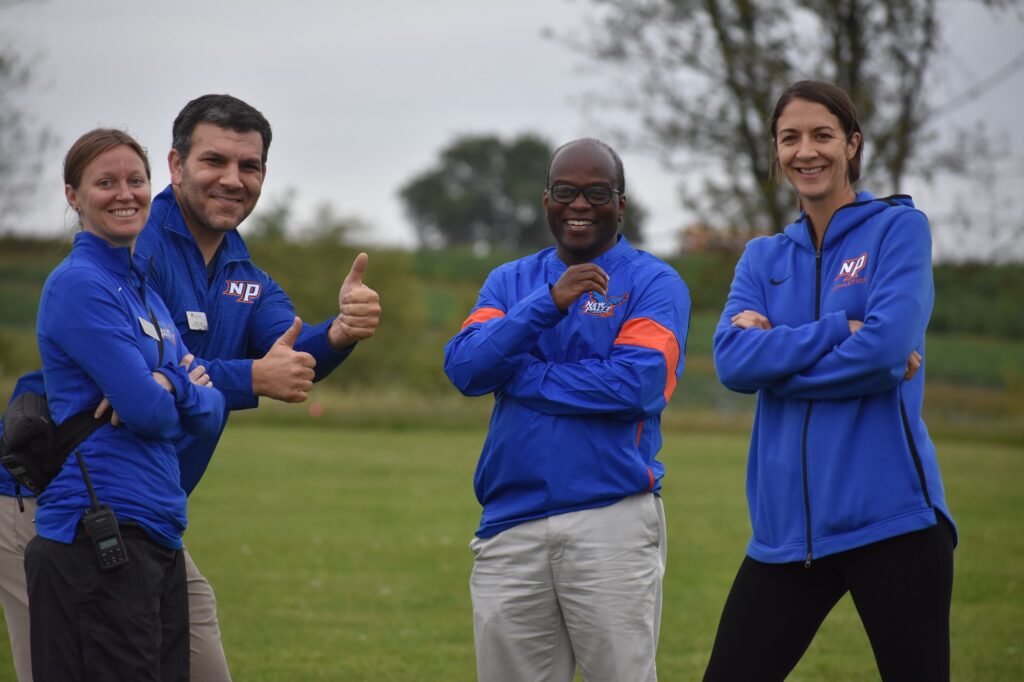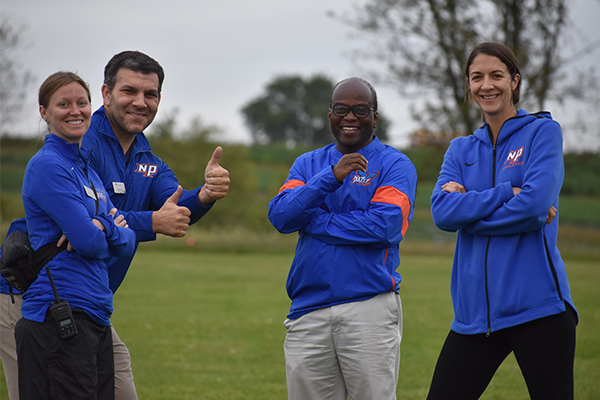Meet the athletic trainers who are leading contact tracing at SUNY New Paltz

Allison Lindsay and Bryan Lurie, athletic trainers in the Department of Athletics, Wellness & Recreation, are at the center of SUNY New Paltz’s process of contact tracing those who have been diagnosed with or possibly exposed to COVID-19.
If that surprises some members of our community, that may be due to common misconceptions about what athletic training is, and what sets it apart from other forms of training, coaching and therapy that take place in collegiate sports.
Athletic training is a health care profession that focuses on preventing, treating and rehabilitating athletes’ injuries and other medical conditions.
“If a student has an injury, we take their history, we do the evaluation and we manage their treatment, in coordination with the Health Center and orthopedists we partner with,” Lurie said.
A key component of athletic training is conducting diagnostic interviews. That experience and know-how makes Lindsay and Lurie a natural fit for COVID-19 contact tracing, which similarly involves asking questions, consistent follow-ups, monitoring symptoms, creating documentation and protecting confidentiality.
Both processes also require professionals who can establish trust in situations when anxieties are running high.
“We’re used to working with athletes who are very motivated to compete, and who may not want to say anything about an injury that would prevent them from competing,” Lindsay said. “We join them in that moment, create a rapport, educate them and help them navigate their initial emotions, so they can move on to practical next steps and feel like it’s going to be okay.”
Creating open and honest lines of communication is crucial in contact tracing. The process only works when those being traced adopt a community mindset and speak truthfully about where they’ve been, and with whom.
Lindsay and Lurie say the students they’ve worked with thus far this semester have been incredibly cooperative and upfront. Successful contact tracing has been one of the keys of the College’s relatively low incidence of coronavirus infection.
“We wouldn’t be getting the results we’re getting if students weren’t doing their part,” Lindsay said.
Contact tracers at SUNY New Paltz serve as an important connecting hub between students and officials at the Ulster County Department of Health who have been tasked with reporting COVID-19 data to state and federal agencies. In some cases that means doing “detective work” to track down students when all we have is a first name or hall of residence.
When quarantine is necessary, contact tracers become a lifeline for students who are otherwise isolated for much of the day. Lindsay and Lurie are part of a larger team including staff from Residence Life, Student Affairs, the Psychological Counseling Center, the Student Health Service and other campus departments, who follow up frequently with students and make sure they’re getting what they need to recover and reintegrate into campus life.
“This work is different from what we do as athletic trainers in some ways,” Lurie said, “but ultimately we just want to make sure everyone’s okay.”
As for the tracers themselves, they say the new role comes with new pressures, but they’re doing their best to adapt to realities posed by the pandemic.
“Like anyone else, we wish we could be doing our normal thing, but no one is doing their normal thing right now,” Lindsay said. “This is what we do as athletic trainers all the time: We look at a dynamic situation, and we problem solve.”
Find more information about SUNY New Paltz’s testing, tracing and quarantine policies on our Frequently Asked Questions page, and stay up-to-date on the latest case reports using our COVID-19 Dashboard.

